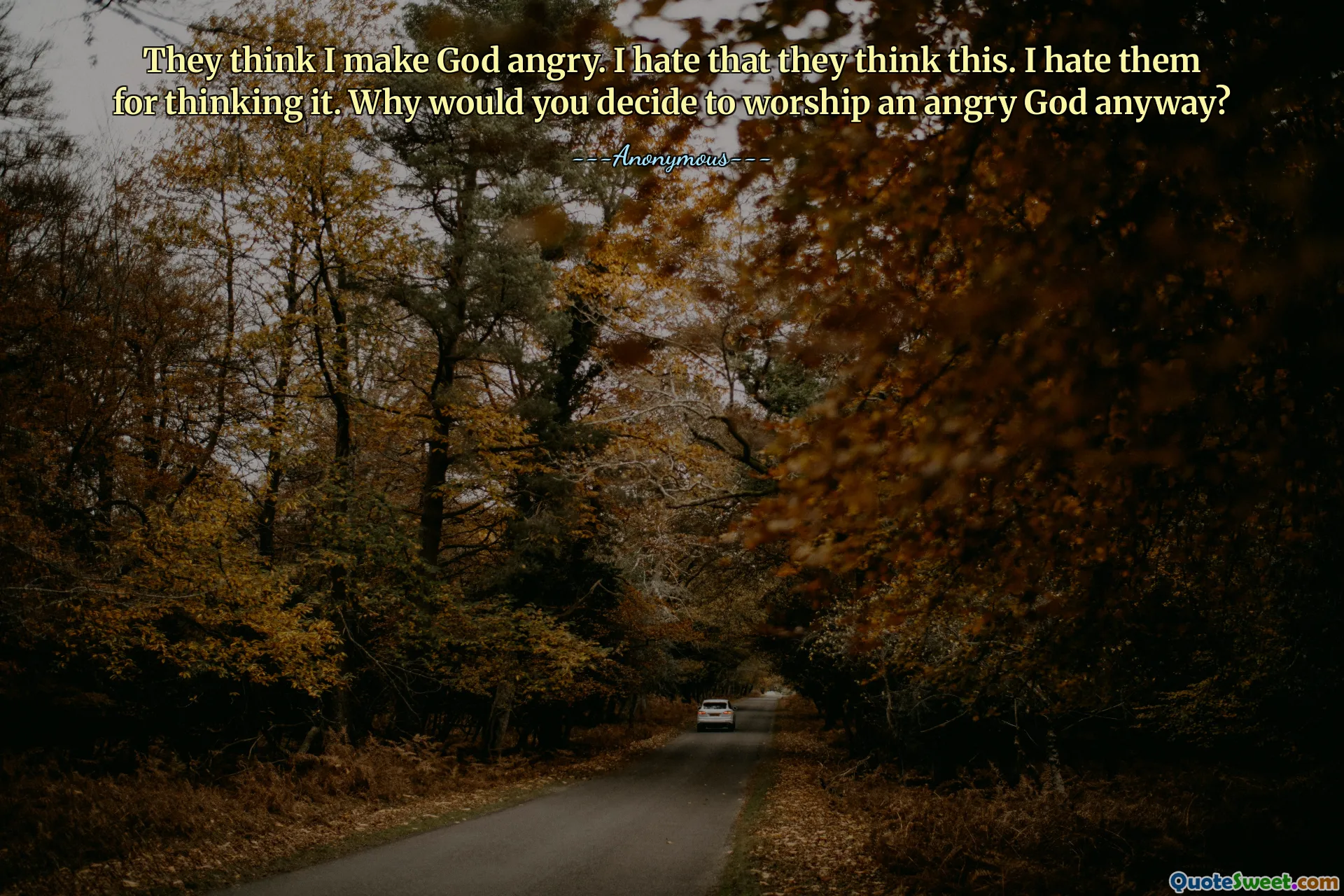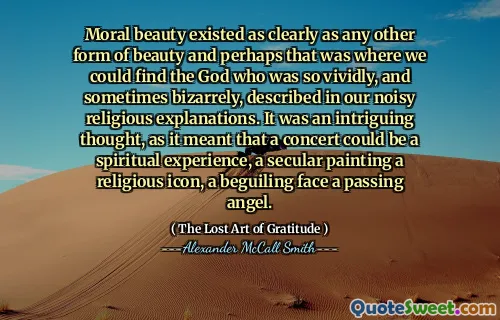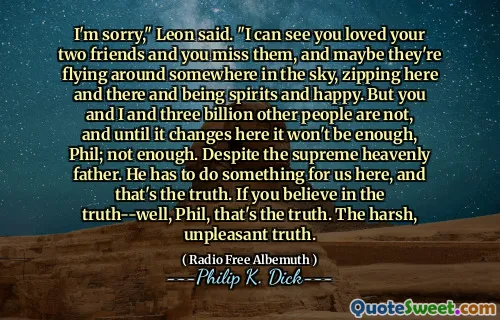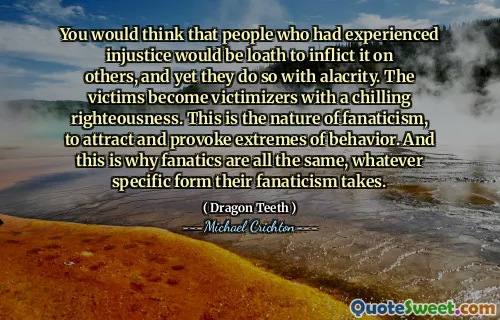
They think I make God angry. I hate that they think this. I hate them for thinking it. Why would you decide to worship an angry God anyway?
[Markdown format] The quote delves into the perception of God and the human inclination to project anger or wrath onto the divine. It raises profound questions about the nature of deity as understood by different individuals and societies. The speaker appears distressed by the societal or personal misinterpretation that God is inherently angry, which can influence how people engage with their faith and spiritual beliefs. This sentiment echoes a common critique of certain religious portrayals where divine anger is emphasized, sometimes overshadowing notions of compassion, forgiveness, or love.
The speaker’s frustration reveals a desire for a more compassionate view of the divine—one rooted in understanding and empathy rather than fear and punishment. The rhetorical question posed, "Why would you decide to worship an angry God anyway?" challenges the very foundation of this perception. It prompts reflection on why humans might find it easier or more compelling to follow a deity associated with judgment and wrath, perhaps as a reflection of their own perceptions or societal narratives.
Moreover, this quote underscores the importance of individual interpretation of spirituality and the impact of religious teachings on personal and communal attitudes towards divinity. It suggests that perceiving God as angry might serve as a means of control or moral motivation for some, but it may also alienate others who seek a more nurturing or benevolent understanding of a higher power.
Ultimately, the quote invites us to consider how we view and relate to the divine. Do we frame God as enraged, and if so, what does that say about our collective psyche? Or can we reimagine divine compassion that promotes love rather than fear? It emphasizes that our perceptions of God shape our actions and beliefs, urging a reevaluation of the divine attributes we hold dear.
---Anonymous---











